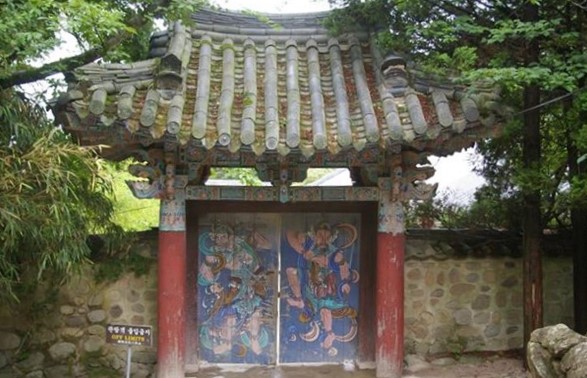Defensive Nationalism

Nationalism is universal to all countries but exhibits different characteristics in each. Many countries have characteristic elements of pride, aggression – and even embarrassment. In Korea, a strong characteristic is defensiveness. There is an underlying element that the world is ‘out to get' Korea so all other countries (and by extension, foreigners) are viewed with caution and suspicion. "What are they up to? Whatever it is, it isn't good for us." seems to be an underlying attitude. On rare occasions, I have heard this stated overtly but most often, it is an undercurrent. Having lived in Korea most of my life, I have often pondered the origins of this attitude. My conclusion is that (in the words of a former colleague), Korea lives in a tough neighborhood.
Where does it come from?
Located in the vortex of powerful neighbors – China, Japan and Russia, Korea is geographically 'between a rock and a hard place'. Korea has been bullied by its neighbors. The Mongols invaded in the 13th century, the Japanese in the late 16th century and Manchus in the early 17th century. In between, pirates raided coastal towns taking what they could.
In the 19th century, Korea interacted with Western countries through a series of aggressive military skirmishes on Kangwha Island (France in 1866, the US in 1871 and Japan in 1875). Korea was ultimately 'opened' by Japan in 1876 through 'gunboat diplomacy' mimicking Commadore Perry's tactics in Yokohama a quarter of a century earlier (1853/4). Within a generation, the Japanese defeated first the Chinese and then the Russians in wars for hegemony in Korea, the latter largely on Korean soil. Japan's victory led to 35 years of colonial rule.
Although Korea was liberated in 1945 with the Japanese surrender, the outcome was a divided nation governed by Russian troops in the north and US in the south. Foreign powers stifled self-rule. Abrupt withdrawal of US troops in 1948 invited a northern invasion triggering an intense internecine war. Korea remains grateful to many United Nations countries which came to its aid and saved it from Northern aggression during the Korean War but there are elements that (not unjustifiably) blame the West for the war in the first place. Korea's sovereignty continues to be challenged to this day by Japan's claim to Dokdo, a small outcrop of rocks off Korea's east coast.
Historically, Korea was nominally 'subservient' to China with the Korean King beholden to the Chinese Emperor. However, the interaction was mostly ceremonial. For the average citizen, there was little sense of 'nationhood'. Belonging and loyalty had a much narrower focus on family and community. Politics was inwardly focused on securing resources from the central government, first a king, then a colonial power and in the modern era, a powerful president.
Modern Korea
Modern Korea too has been marked by imbalanced international relations. After the Korean war, Korea was protected by the US military umbrella and prospered economically at least in some large measure from access to the US market.
During its rapid economic development, Korea was often cited, fined and sanctioned for a menu of economic 'crimes' including copyright infringement, dumping, human rights violations and other heinous behaviors. Now that Korea is a thriving, modern, democratic 'middle-power', the rest of the world may wonder why there is a strong sense of nationalism here that can sometimes challenge business cooperation. ‘Outsiders’ needn't look too far to recognize that having been bullied for so long, Koreans remain a little leery of foreigners.
Learning about a nation's culture, respecting local practices, appreciating artistic achievements, learning the language are important elements when working in any foreign country. Given the discomfort and suspicion of foreigners percolating through the centuries, knowledge and understanding of Korean culture is a key element to successful business in this market. Rather than overtly expressing your appreciation for Korean culture, demonstrating it subtly through 'correct' behavior is the most powerful bond contributing to business success.
IRC has a 40-year history of assisting foreign organizations to navigate their way around this market. When engaging in business here, let IRC Guide Your Way.
Peter Underwood
Managing Partner
IRC Consulting
Suite 1705, Officia Building, 92, Saemunan-ro, Jongno-gu, Seoul, Republic of Korea 03186
|